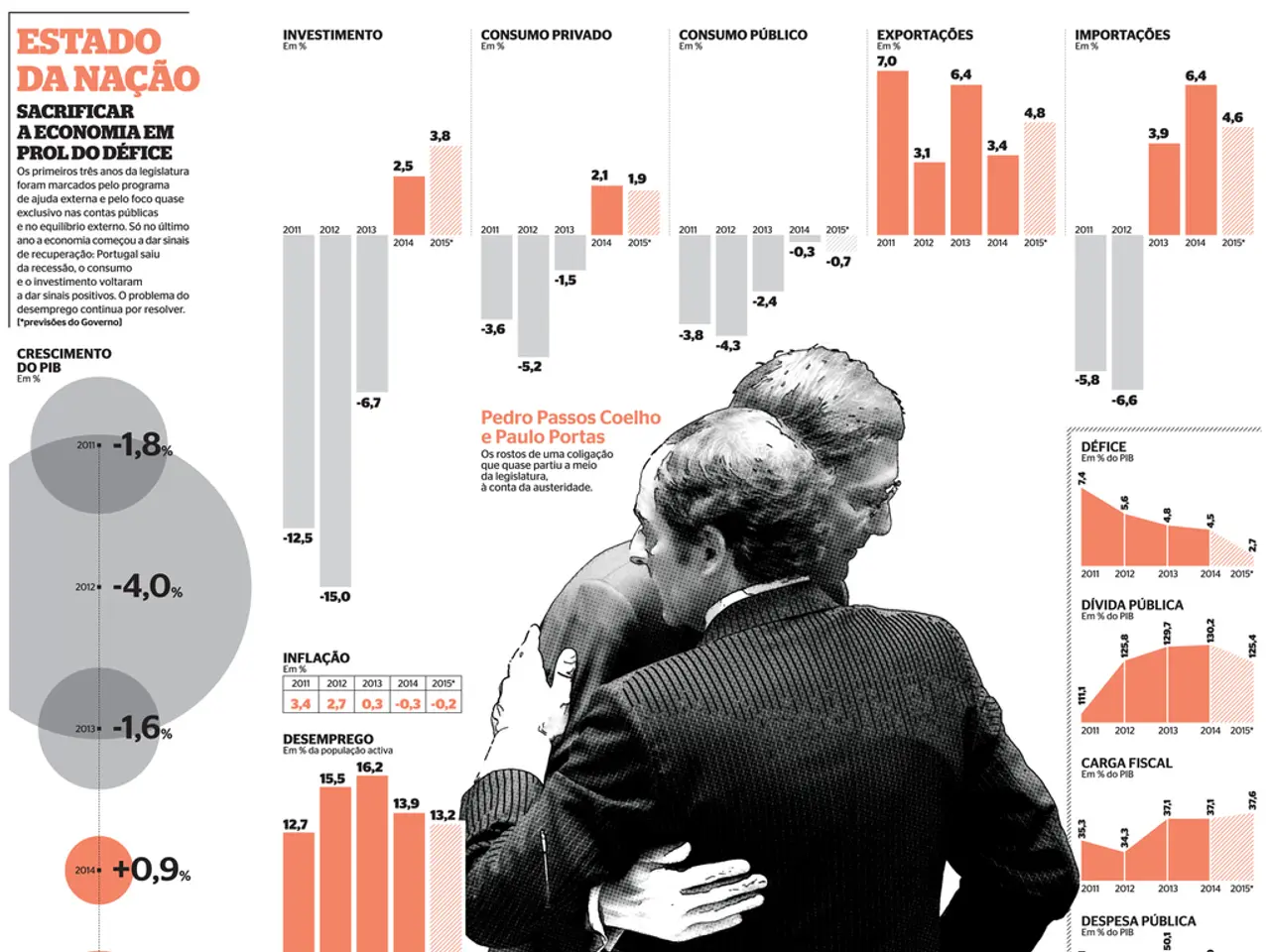Partner Remains with Spouse for Financial Reasons, Discovers It's Not Based on Love but Material Support
In a recent consultation, clinical psychologist Dr. Elizabeth Carr was approached about a relationship dynamic between an insecure man and a woman. The man, feeling hurt and overlooked, considered leaving his partner with nothing as a form of retaliation. However, Dr. Carr advises that an honest conversation and careful disentangling of finances would serve the man better than punitive measures.
The relationship, it seems, is a collision of unmet needs. The man yearns to be loved for himself, not his assets, while the woman seeks stability but struggles to communicate romantic passion. This dynamic has led to a situation where the man may have been unknowingly used for his resources, or perhaps, he has been overcompensating out of insecurity.
The signs of one partner feeling taken advantage of due to overcompensation in a relationship are not always obvious. They can manifest as exhaustion and burnout from constantly trying to meet or exceed the other partner's needs. Overcompensation may also lead to feelings of emotional or financial drain, an imbalance in the relationship dynamic, guilt-driven behavior, and subtle signs of insecurity.
These signs indicate a relationship strain where one partner may silently endure disproportionate effort or sacrifice, creating emotional fatigue and imbalance. Dr. Carr emphasizes that such a situation is not sustainable and can lead to further insecurity and pain for both parties.
In this specific case, the man has allowed his partner to live in his house, use his car, and stay unemployed. Dr. Carr suggests that the relationship will only cause more insecurity and pain for the man going forward unless he makes changes in their financial arrangements.
Dr. Elizabeth Carr, the founding owner of Kentlands Psychotherapy, has spent over two decades helping individuals, couples, and families navigate complex relationship dynamics. She encourages open and honest conversations, understanding that these discussions can be difficult but are essential for a healthy and balanced relationship. The man has mentioned that he will talk to his fiancée over the weekend, and Dr. Carr hopes that this conversation will lead to a resolution that benefits both parties.
- To address the underlying issues in his relationship, the man could focus on discussions about love-and-dating and relationship dynamics instead of resorting to punitive measures, such as separating finances or leaving his partner with nothing.
- In the context of family-dynamics, it's important for the man to establish communication about romantic passion and address unmet needs, as well as create a balanced partnership that doesn't rely on overcompensation or unknowingly using each other's resources.
- Along with personal-growth and self-development, navigating relationship challenges requires commitment to education and understanding the signs of a toxic relationship, such as emotional or financial drain, an imbalance in the relationship dynamic, and guilt-driven behavior, all of which can contribute to a lack of overall relationship satisfaction.




